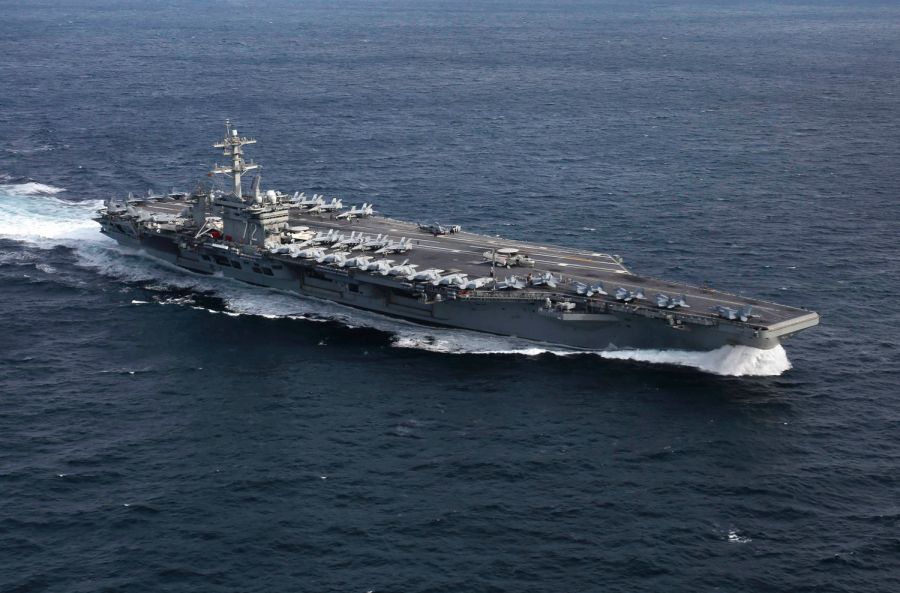Iran? I’ve seen that movie, too
On February 15, 1898, the USS Maine was at anchor in Havana Harbor when an explosion sank her killing 260 officers and men. The so-called Yellow Press—led by William Randolph Hearst and Joseph Pulitzer— promptly blamed the Spanish government and cried “Remember the Maine!” In truth, historians remain uncertain about what caused the explosion, but the leading theory is that a fire in one of the coal bunkers on board touched off ordinance stored nearby. Regardless of the truth, the sinking of the Maine helped the yellow press make the case for Spanish treachery and, soon, the United States found herself at war with Spain.
On September 19, 1931, a Japanese military officer placed a small explosive device under a rail-line operated by Japan’s South Manchuria Railway near the city of Mukden, in Northeast China. While the explosion was so small as to not damage the line, the Imperial Japanese Army accused Chinese resistance for the so-called “attack” and used it as a pretext for the invasion and occupation of Manchuria. The League of Nations investigation concluded that China was behind the explosion and that the invasion of Manchuria was not justified. The Empire of Japan rejected the conclusions and withdrew from the League of Nations.
On August 2, and August 4, 1964, American warships in the Gulf of Tonkin—off the coast of Vietnam—were reported to have been targeted by North Vietnamese patrol boats. American officials at the time reported that the Vietnamese had fired first and that U.S. forced returned fire only in self-defense. Within a week—on August 10, 1964—Congress passed the Gulf of Tonkin resolution, giving the administration of President Lyndon Johnson the authority to escalate America’s involvement in Vietnam. Subsequent investigations concluded that the August 2 incident did take place, though the U.S. ship opened fire first, but there was no second engagement on August 4.
In the spring of 2002, less than a year after the al Qaeda attack of September 11, 2001, the administration of George W. Bush began making the case for war in Iraq. They warned that Saddam Hussein’s pursuit of weapons of mass destruction and support for terrorism was an unacceptable risk to American security in the post-9/11 world. The only way to counter the threat from Baghdad, said officials at the time, was to remove the regime, if necessary, by force. In 2003, the United States invaded and occupied Iraq, completing the policy of regime change. In the aftermath, we learned that the U.S. intelligence community simply got the WMD intelligence wrong—having been gamed by Hussein himself who worried about his rivals in the region and wanted to project strength. But the links between Hussein and Islamic extremists were patently and unquestionably over-stated by administration officials making the case for war.
These stories loomed large in my mind this week as media reports swirl about rising tensions between Iran and the United States. Last week, the aircraft carrier USS Abraham Lincoln and its battle group were directed to the Persian Gulf, along with a bomber task force made up of American B-52s, and elements of the 22nd Marine Expeditionary Unit in response to threats posed by Iran, despite concerns from England, Spain, and Germany who have said they don’t see any new threat. This week began with reports of possible sabotage of oil tankers in the Gulf of Oman that U.S. sources blamed on Iran. Meanwhile, The New York Times broke a story that the White House was reviewing plans to deploy 120,000 U.S. forces to the region to confront Iran. On Wednesday, the U.S. State Department ordered “non emergency” employees to leave Iraq.
If it all feels eerily ominous and yet, somehow familiar, that’s because it is.
The reality is that none of us without access to highly classified intelligence are in a position to know, definitively, what the threat posed by Iran is. I have no doubt that there are hard-liners in the Iranian regime who would welcome a conflict with the “Great Satan”—as they refer to the United States—as a means to prop up their regime. But I also know that the president’s National Security Advisor, John Bolton, has long wanted to confront Iran militarily and has spoken openly of a need for regime change in Tehran, just as he once spoke hopefully about regime change in Baghdad.
History is full of examples of states staging events to either build, shape, or confirm narratives that justify the use of armed force. Our responsibility as citizens in 2019 is to listen to the evidence and claims with a critical ear; to ask hard questions of our elected representatives, to resist being caught up in the surge of events or thinking that simply because a government official says something—any government official from any government—it must be true—or false. We have to think critically and to make our own concerns about evidence, actions, and consequences heard. The stakes are immense.

